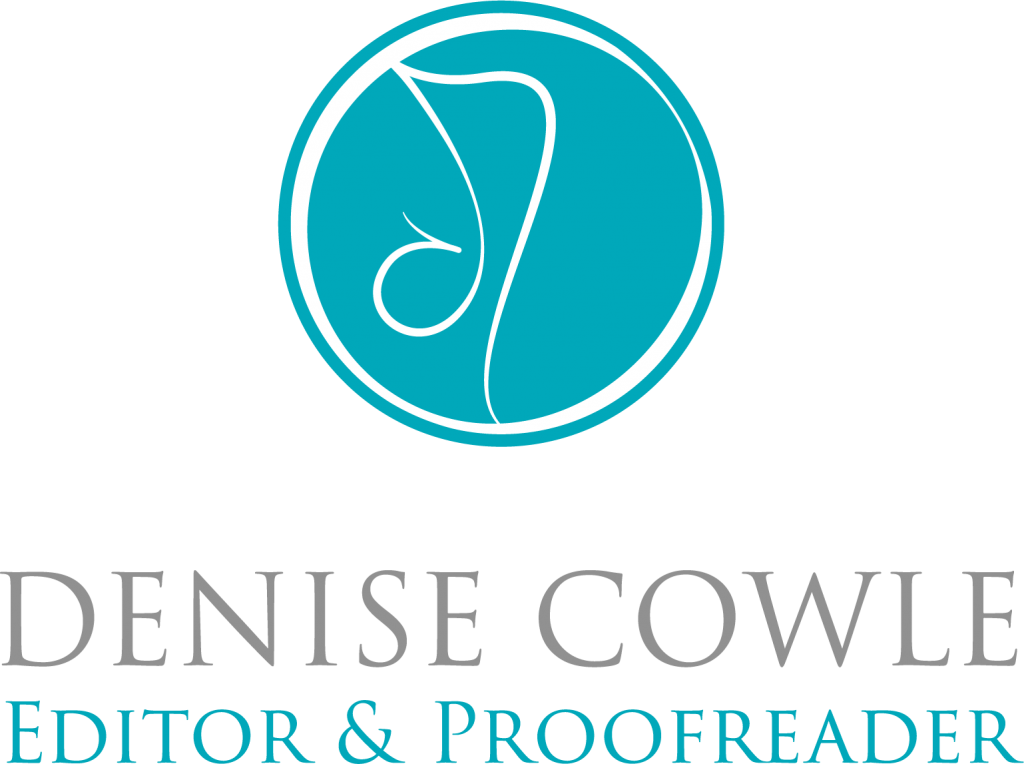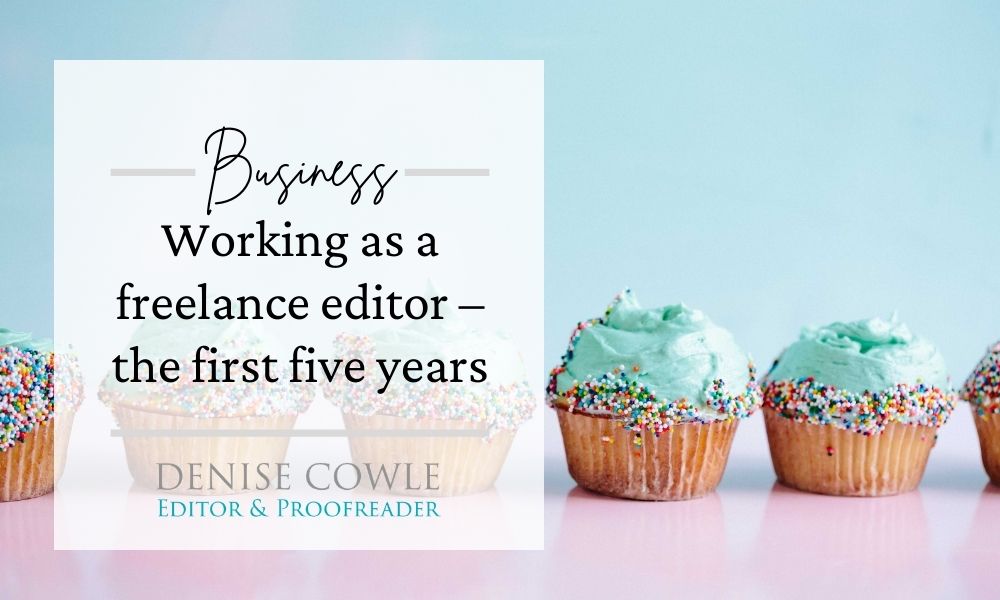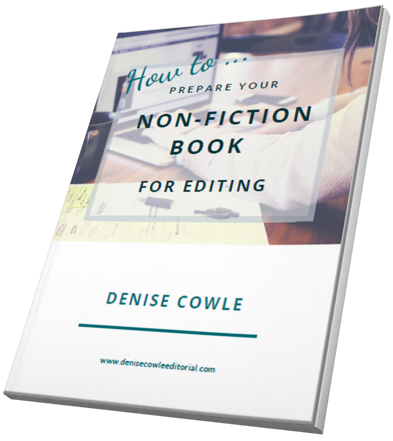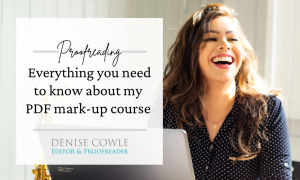|
This week I celebrated five years as a freelance proofreader and editor.
Happy anniversary to me!
A lot has happened in five years, and it’s turned out pretty well, to be honest!
I do think I could have prepared better, so if you’re thinking about making a career change, here are five things to consider:
1 Do your researchFind out about training, job prospects, the demand for your prospective new career and the opportunities to earn whatever your required income level may be. I was fortunate that my husband had worked in publishing for 20-odd years and could give me advice and point me in the general direction of useful resources.
This didn’t extend to finding me work – whatever contacts he may have given me, I had to get the work on my own merits. If you’re thinking of working for publishers, most will ask you to take an editorial test before adding you to their freelancer database. I’ve taken lots of tests over the past five years! 2 Get the appropriate trainingYou need to be able to demonstrate your competence and ability. In my field, there are many providers of training, of varying levels of quality. The Chartered Institute for Editing and Publishing, the Publishing Training Centre and Publishing Scotland all run well-respected courses for editorial training. Without this evidence, how can you expect your clients to trust that you know what you’re doing? There may be financial support from your local business development agency to help you get started.
3 Seek out and use supportFind your community, your tribe, your squad (as my teenagers would say!).
One of the first things I did was go along to the Glasgow local group meeting of the Society for Editors and Proofreaders. No question – this was the best decision I could have possibly made. The SfEP is an amazing organisation, dedicated to upholding and promoting the highest editorial standards, and joining it was a no-brainer for me. Over the years it has been an invaluable source of information and support, via their training courses, online members’ forum and local group meetings. And many of these colleagues (both virtual and in real life) are now my friends.
I’m also a member of several Facebook groups for editors, some of which are international, which gives an enormous breadth and depth to the knowledge pool there. A simple question about restructuring a sentence, how to word a reply to a tricky email, or rates of pay (yes, we DO share that information) can generate over 100 comments – I keep a folder of ‘clippings’ on my laptop so I can refer to them when required.
Spending time with like-minded people gives me a real boost – working as a freelance editor can lead to feelings of isolation and a lack of confidence, so connecting with my peers, whether face-to-face or online, can provide much-needed reassurance and restore enthusiasm.
4 Identify and use your transferable skillsWe all have them. Even if you’ve been in the same field all your working life, as I had, you have skills you can apply to a completely different sector. Believe me. I even wrote a blog about it.
5 Market yourselfBy their very nature, and I include myself in this, many editorial professionals feel uncomfortable about promoting themselves, not wanting to appear as pushy, or blowing their own trumpet.
Get over it.
The truth is, if you’re not online, if you’re not producing content, you don’t exist.
Get a website. Put testimonials on it from satisfied clients. Put a professional entry on LinkedIn. Here’s mine, for example. Network. This doesn’t need to be scary. If you don’t know where to start, try Stefan Thomas’s book, Business Networking for Dummies. I met Stef at the TCMA conference last year, and sat beside him for two days at this year’s conference. He knows what he’s talking about. Go to free networking meetings for local businesses and talk to people.
Don’t tell people what you do, tell them how you can help them.
A recent blog post on the Glasgow Editors’ Network website has some very useful information on marketing yourself and getting started in business.
Register with online directories in your field of work. For editorial freelancers, some, such as FindaProofreader, only require that you pay a fee. Others, such as the SfEP Directory of Editorial Services, only allow people to register when they can demonstrate a certain level of skills and experience – for SfEP this is holding Professional or Advanced Professional membership of the society.
So, what do the next five years hold?This anniversary has really made me think about what I should be focusing on for the next five years and how I should go about doing it. With perfect timing, last week I attended The Content Marketing Academy conference in Edinburgh, which gave me so much to think about in terms of how I take my business forward.
Yes, my business. Because now I recognise that I’m not a ‘freelancer working from home’; I run a business. And that requires a fundamental shift in thinking.
You can read about my five takeaways from The Content Marketing Academy conference in my next post.
If you’ve recently had a work anniversary, has it made you review what you’ve been doing? Let me know in the comments if you would change anything, or if things have gone exactly as you planned. (Lucky you, what’s your secret?!)
|
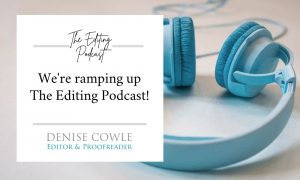
How we’re ramping up The Editing Podcast
The Editing Podcast has had a revamp for 2022! Find out more about the new broadcast schedule for The Editing Podcast and how you can
